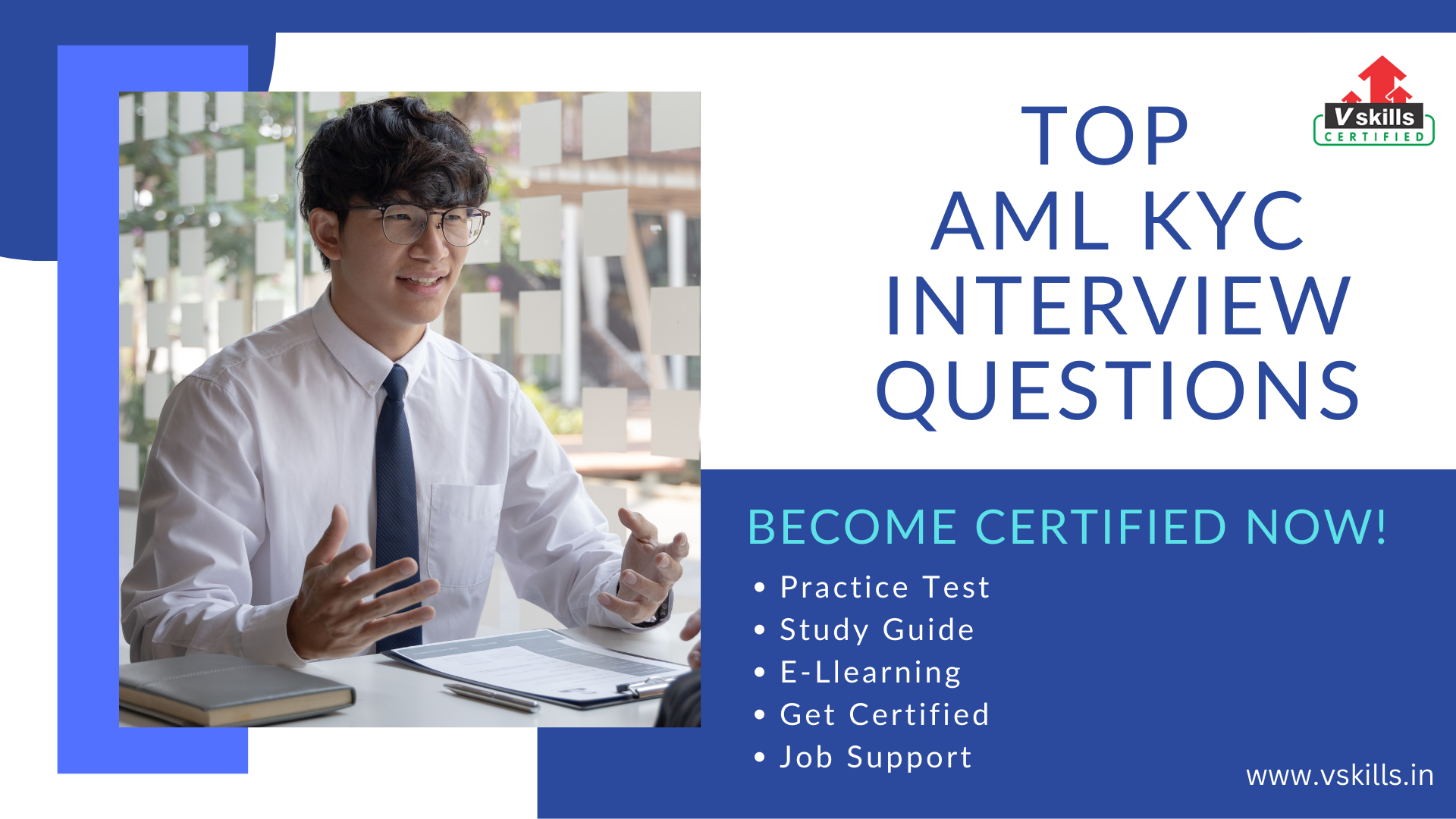Businesses must navigate a plethora of regulations in order to be compliant. Worldwide, national and international authorities have mandated anti-money laundering (AML) regulations, and financial institutions are subject to a wide range of screening and monitoring requirements. The Know Your Customer (KYC) procedure, which enables businesses to recognize and comprehend the financial behaviour of their customers, is one of these AML obligations. The AML KYC interview questions conducted in India may pique your interest. Allow us to guide you through it.
AML KYC Compensation
Before you sit for an interview it is essential to conduct thorough research for yourself like what is the average salary and which companies might hire you. Here is some information that may be beneficial for you –
The average annual salary for an AML KYC Analyst in India is 3.9 lakhs, with salaries ranging from 2.4 lakhs to 7.0 lakhs. You might be in charge of conducting research and performing analysis as a beginning analyst. Some of the responsibilities might be:
- Identification, confirmation, and customer screening
- ensuring top-notch criteria for KYC reviews
- bringing suspicious transactions to senior management’s attention
The top employers in India for AML and KYC positions include KPMG, EY, State Street, Bank of America, Credit Suisse, Deutsche Bank, J.P. Morgan, BNP Paribas, NatWest Group, Morgan Stanley, CRISIL Limited, TCS, Genpact, IBM, IDFC FIRST Bank, Barclays, Delta Capita, and DBS Bank.
Top AML KYC Interview questions
Before preparing for an interview then you must sharpen your analytical skills to be ready to qualify. Focus on building these key AML KYC skills
- Money laundering and Terrorist Financing
- Understanding Customer Risk Profile
- Identify and assess risk
- Policies and procedures
Types of Questions asked in AML KYC Interview
The types of questions asked in the interview largely depend on the responsibilities of the role you are being interviewed for and whether you are a fresher or more experienced professional. In general, as a fresher, the interview will focus on assessing your research and analysis skills, judgment capability on handling a possible red flag alert, report writing skills and general attitude. But for For experienced professionals, the interview will be rigorous and require you to showcase real-life examples, contribution towards the process, and familiarity with the tools and techniques, latest regulations and updates. Here are some examples of technical questions that you might consider if you want a job in this domain in India –
Ques: Explain the AML/KYC customer identification process.
Ans: The customer identification process entails identifying the customer using available documentation and other information in order to comply with government-mandated AML/KYC regulations.
Ques: What is the best way to recognize suspicious transactions?
Ans: Observation, examination of Exception Reports, and use of AML Software can all be used to find suspicious transactions.
Ques: What might constitute a basis for a transaction to be deemed suspicious?
Ans: There are many reasons why a transaction might be suspicious, but some common ones include false identification, an incorrect address, or uncertainty regarding the account’s true beneficiary.
Ques: What do pooled accounts mean?
Ans: A pooled account is a fiduciary account that combines the investments of several different people.
Ques: Describe some criteria for improved due diligence.
Ans: The following criteria apply to enhanced due diligence: customer location, financial situation, business type, or transaction purpose.
Ques: What does KYC policy mean?
Ans: As required by RBI, all Indian banks must have a KYC policy. Customer Acceptance Policy, Customer Identification Procedures, Monitoring of Transactions, and Risk Management are listed in the KYC policy.
Ques: Describe the AML/KYC Customer Acceptance Policy.
Ans: The customer acceptance policy outlines the procedures to be followed when a customer opens an account. The policy lists the identification documents and other required customer attributes.
Ques: In terms of AML/KYC, describe electronic verification using IIBF AML-KYC.
Ans: Comparing client records to government or institutional databases is the process of electronic verification. It is more trustworthy than tangible or written evidence. Because there is no need for physical verification, it also saves the customer time.
Ques: What other documents besides a passport and a driver’s license are needed for a customer’s CDD or KYC?
Ans: Due to improvements in forging techniques, it can be challenging to spot fraudulent documentation; as a result, you should have supporting documents in addition to the customer’s passport and driver’s license. Another option is to use more trustworthy electronic verification.
Ques: Why are checks for anti-money laundering required?
Ans: Anti-money laundering operations must be conducted legally, and compliance is necessary. Noncompliance may lead to more than just a fine; it may also result in a possible criminal charge or the closure of the institution. Governments around the world have passed anti-money laundering laws.
Ques: Does AML-KYC require the financial institution to perform customer due diligence on current customers?
Ans: Yes, all clients should have up-to-date customer due diligence. Any modifications to a client’s profile ought to be noted during the ongoing customer due diligence process.
Ques: Is it possible to open a bank account that isn’t subject to any restrictions (as in the case of a small account) if I don’t have any of the legally required documents?
Ans: Yes, You can open a standard account by providing a copy of any of the legal documents listed under “Proof of Identity” (PoI). Identity cards issued by Central/State Government Departments, Public Sector Organizations, Statutory/Regulatory Authorities, Scheduled Commercial Banks, and Public Financial Institutions with the respective person’s photograph; or Stamp-Paper/Letter issued by a Gazetted Officer with the respective person’s photograph duly attested.
Ques: Which crimes are subject to AML-KYC, and whose proceeds are confirmed?
Ans: Drug trafficking, kidnapping, extortion, murder, corruption, unethical trafficking of women and children, and fighting against the government are all covered.
Ques: Who conducts anti-money laundering checks?
Ans: Anti-money laundering checks are performed by professionals who work for customers, organizations, banks, or financial institutions and are involved in the opening of accounts or accepting of funds. Real estate agents, attorneys, accountants, and tax experts are among the included professionals.
Ques: Do you require any additional proof when you pick up your passport and driver’s license?
Ans: With the EV, you can confirm a wider variety of data, improving your understanding of your client (KYC – Know Your Customer). The Third European Money Laundering Directive recommends and mandates its use for the examination of other data sets, such as PEPS and Sanctions lists. It is necessary to refocus efforts on identifying fake documents as the number of them rises. Electronic verification was developed to reduce the possibility of receiving potentially fake documents, giving you more confidence in their veracity.
Ques: What is meant by “continuous customer due diligence”?
Ans: Ongoing client due diligence entails regularly assessing customer information and setting up procedures for account monitoring. This is necessary for all customers, not just brand-new ones, but it is also necessary for current ones.
Final Words
AML-KYC Analysts can also work as compliance analysts, compliance officers, forensic managers, risk managers, and transaction monitors in addition to being AML-KYC Analysts. The annual salary range for compliance analysts is from three to ten million dollars, with the national average being close to six million. The annual salary range for compliance officers is up to 3.2 lacs, with the national average hovering around 6.7 lacs. A Lead Compliance Officer role can pay up to 17 lacs per year, and the salary trajectory for Compliance Officers starts at 6 lacs for those with 2 to 4 years of experience.




